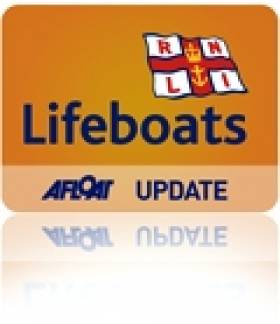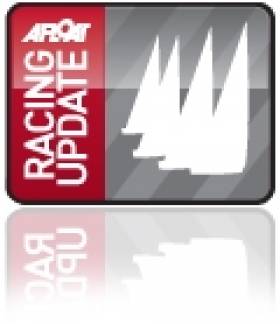Displaying items by tag: 1720 National Championships
Baltimore Hosts 2022’s 1720 Nationals Next Month
Baltimore Sailing Club will play host to this year’s 1720 Nationals from Thursday 8 to Saturday 10 September.
Registration will take place Wednesday 7th September from 5-8pm and on the following morning from 9-10am.
The entry form and Notice of Race are now available, with the Sailing Instructions to follow closer to the event. See the Baltimore SC website for more.
1720 with Broken Forestay Required Baltimore Lifeboat
A yacht suffering equipment damage and in danger of being dismasted prompted a call for assistance to the RNLI today.
The Schull based 1720 sportsboat had been participating in the Irish 1720 National Championships being run out of Baltimore Sailing Club, when the forestay snapped. According to the RNLI 'The boat with 5 persons onboard was in serious peril as the forestay is part of the rigging that holds the mast in place'.
Weather conditions at the time were challenging in the exposed waters near the Calf Islands in West Cork with force 5-6 winds and a 1.5 metre swell.
A race support boat held the stricken yacht head to wind, while the inshore lifeboat under the command of Kieran Collins made its way to the scene. The lifeboat crew of Ronan Sheehy and Micheal Cottrell then took the 1720 under tow and returned her to the safety of Schull Harbour.
Related Safety posts
RNLI Lifeboats in Ireland
Safety News
Rescue News from RNLI Lifeboats in Ireland
Coast Guard News from Ireland
Water Safety News from Ireland
Marine Casualty Investigation Board News
Marine Warnings
O'Leary Continues Lead in 1720 Nationals
Anthony O'Leary continues to lead at the Irish 1720 National Championships hoste by Baltimore Sailing Club writes Claire Bateman. After four races sailed on Friday and one discard applied the results are: 1. Anthony O'Leary, Antix 3 pts: 2. Neil Hogan, Micam, 8 pts: 3. Ben Cooke, Smile 'n wave, 12pts: 4. Robert O'Leary, Wet 'n Ready, 15 pts: 5. Michael Wilson, Yknot 16pts.






























































